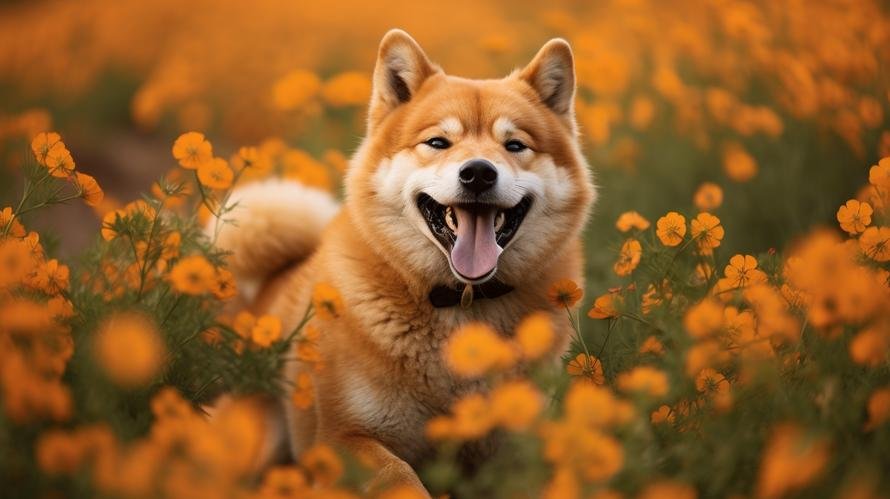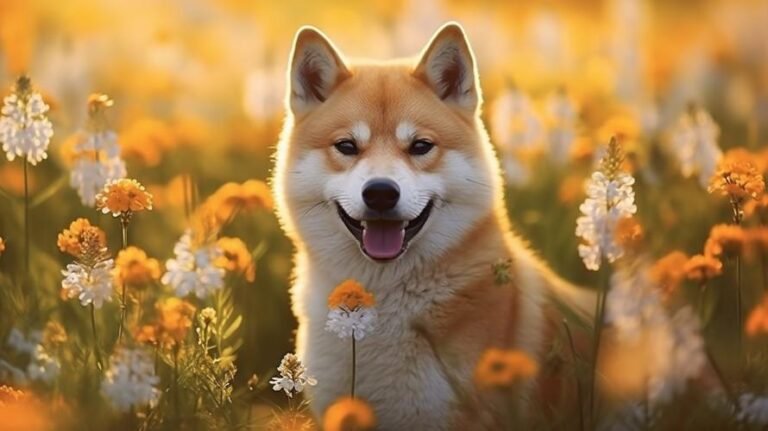Have you ever encountered a dog that immediately takes your breath away because of its majestic and intimidating presence, yet simultaneously tugs at your heart strings with a warm and gentle gaze? If you said yes, you may have already met an Akita. Originating from the mountainous regions of Japan, Akitas are large and powerful dogs with a dignified, almost regal, presence. They offer a unique blend of tough exterior and affectionate interior that makes them an increasingly popular pet choice across the world.
Perhaps one of the most fascinating things about Akitas is that they have a rich history of being fearless protectors and loyal companions. This role isn’t only limited to their immediate human families. Stories abound of Akitas bravely defending their territories from wild animals like bears in Japan’s harsh mountainous regions. Additionally, these dogs have been long trusted as hunting partners and guardians of royal families.
We’re getting ahead of ourselves here, let’s backtrack a little. It’s very important to know that there are two primary types of Akitas – the Japanese Akita and the American Akita. While they both share the same ancestral roots and are classified as the same breed in many countries, the two are regarded as distinct breeds in others, like United States and Canada. That’s part of the reason why these dogs are surrounded by a fascinating, yet slightly confusing, cloak of history and mythology.
Interestingly, the rituals of ancient Japanese nobility involved the ‘Akita Inu’, or Japanese Akita, as they called it. These dogs were perceived to bring good fortune and health, and hence were often gifted to express goodwill. Similarly, American Akitas, also known as ‘Akita Shepherds’, were tasked with a variety of critical roles – ranging from being police dogs to participating in sled races in Alaska, displaying their versatility.
Now, the question arises. Is an Akita a good pet?
Well, the word ‘good’ can be subjective. An Akita certainly won’t make a good pet for everyone. They can be an absolute delight for the right owner, but could also prove to be a handful for an inadequately prepared one. As such, let’s delve into what potential Akita parents need to know, starting with their highly notable physical attributes.
Imagine a sturdy, deep-chested, well-muscled dog that stands 24 to 28 inches tall and weighs around 70 to 130 pounds. Add in a fluffy double coat that comes in a variety of colors, deep-set eyes that express intelligence and alertness, and a thick, curving tail that’s often carried over the back to denote confidence. Congratulations, you’ve just visualised an Akita.
However, with great power comes great… shedding! Yes, these dogs shed profusely, particularly during spring and fall. Regular brushing and occasional spa days are non-negotiable if you wish to maintain that glorious coat and, you know, not have dog hair in your coffee.
Now, let’s move on to their personalities. Akitas are known to be extremely loyal and affectionate towards their families. Some Akita parents even claim that their pets act like oversized lapdogs that yearn for attention and a fair share of belly rubs. They are also great with children and show an instinctive protective attitude towards them. Beware, though! This protective instinct can sometimes transform into possessiveness if not kept in check.
Training an Akita is a task best approached with patience and firmness. Keep in mind that these dogs were bred to be independent hunters and protectors. That’s not to say they are stubborn or untrainable. On the contrary, they can excel at obedience and even agility training, but they’ll need an owner who displays the qualities of a confident leader.
It’s also worth considering that Akitas are generally reserved towards strangers and other dogs, particularly those of the same sex. Socialization, then, is absolutely essential from a young age. If handled properly, it can help your Akita to grow into a well-adjusted and behaved adult.
As far as their health is concerned, Akitas are generally sturdy but just like any other breed, they’re prone to certain conditions, including hip dysplasia, hypothyroidism, and Progressive Retinal Atrophy (PRA), which affects their vision. Regular vet check-ups, a balanced diet, and good exercise regime can collectively ensure the overall well-being of your Akita.
So, watcha think? Is an Akita for you?
Choosing a pet is a lifetime commitment. For the right person, an Akita can be a delightful addition to the household, a loving companion, and a loyal protector. They’ll need an owner who can match their loyalty and commitment stride for stride. But prepare yourself for hair-filled coffee, because oh boy, do they shed! And remember, understanding the breed and the responsibilities it brings is a paranormal key in making a well-informed decision.
While the image of a strikingly beautiful and sometimes challenging Akita zips through our minds, let’s remember the most famous Akita of all, Hachiko, who faithfully awaited his deceased owner’s return by visiting the city train station every day for more than nine years. If anything, this story perfectly encapsulates the extreme loyalty and unyielding fidelity of an Akita – traits that define the essence of this incredible breed.
So, even if you decide that an Akita doesn’t suit your lifestyle, it’s hard to deny that they certainly make a mark, and even harder to forget one, once you’ve had the pleasure of meeting them.



